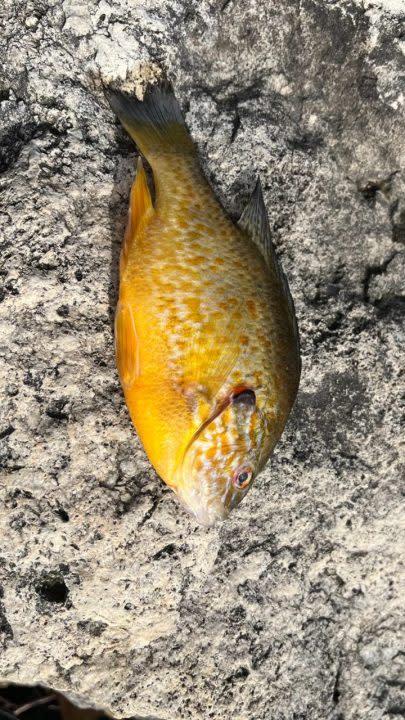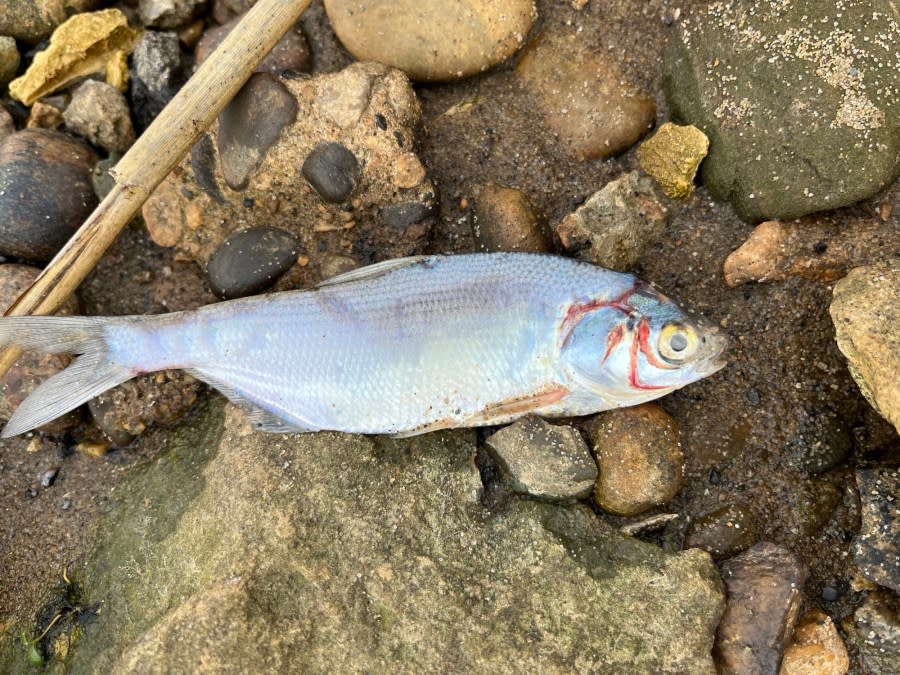Large numbers of dead fish being reported in Lake Macatawa
HOLLAND, Mich. (WOOD) — Large amounts of dead fish are being reported in Lake Macatawa.
The Michigan Department of Natural Resources reports the fish are being found near the outlet channel of Lake Macatawa. Reports through the DNR’s Eyes in the Field online reporting app have been coming in since mid-April.
Experts say the die-off stems from the virus responsible for causing viral hemorrhagic septicemia, or VHS. The pathogen was first reported in the Great Lakes in 2005, but it can go years without causing problems.
“It’s not a real common event. It’s a pathogen that kind of goes into hiding,” said Ed Eisch, assistant chief of fisheries division with the Michigan DNR. “It’s here and we’re never going to be shed of it, we know that, but it kind of goes into hiding. We won’t see it for several years in a row and then it’ll pop up all of a sudden.”



VHS is highly contagious and affects more than 40 species of fish, many of which are important in the recreational fisheries world.
“The primary species that’s being impacted by this particular outbreak is freshwater drum or sheepshead, they’re sometimes called. We’ve also seen some number of gizzard shad that were dead from it, a small number of catfish and even smaller numbers of walleyes as well,” Eisch explained.
Fortunately, the virus doesn’t impact warm-blooded animals, so there is no concern for humans or pets that come into contact with water that has VHS.
“The biggest concern is the potential of the virus being moved from one water body to another,” said Eisch.
The pathogen is transmitted by boats or fishing gear that come into contact with VHS in the water. That’s why Eisch said it’s important for people to clean and disinfect any gear before moving to a new body of water. That goes for boats and trailers as well.
VHS typically isn’t active in water above 59 degrees, so Eisch doesn’t believe it’s actively causing any more fish mortality. Still, he said it’s important for people to be aware.
“People should always be on alert and know that anytime they’re moving their boat and their trailer or their gear from one body of water to another there’s a chance they could be moving pathogens or aquatic invasive species so they should always keep that clean, drain, and dry in mind.”
The public is also encouraged to report sick or dying wildlife to the Michigan DNR.
For the latest news, weather, sports, and streaming video, head to WOODTV.com.

